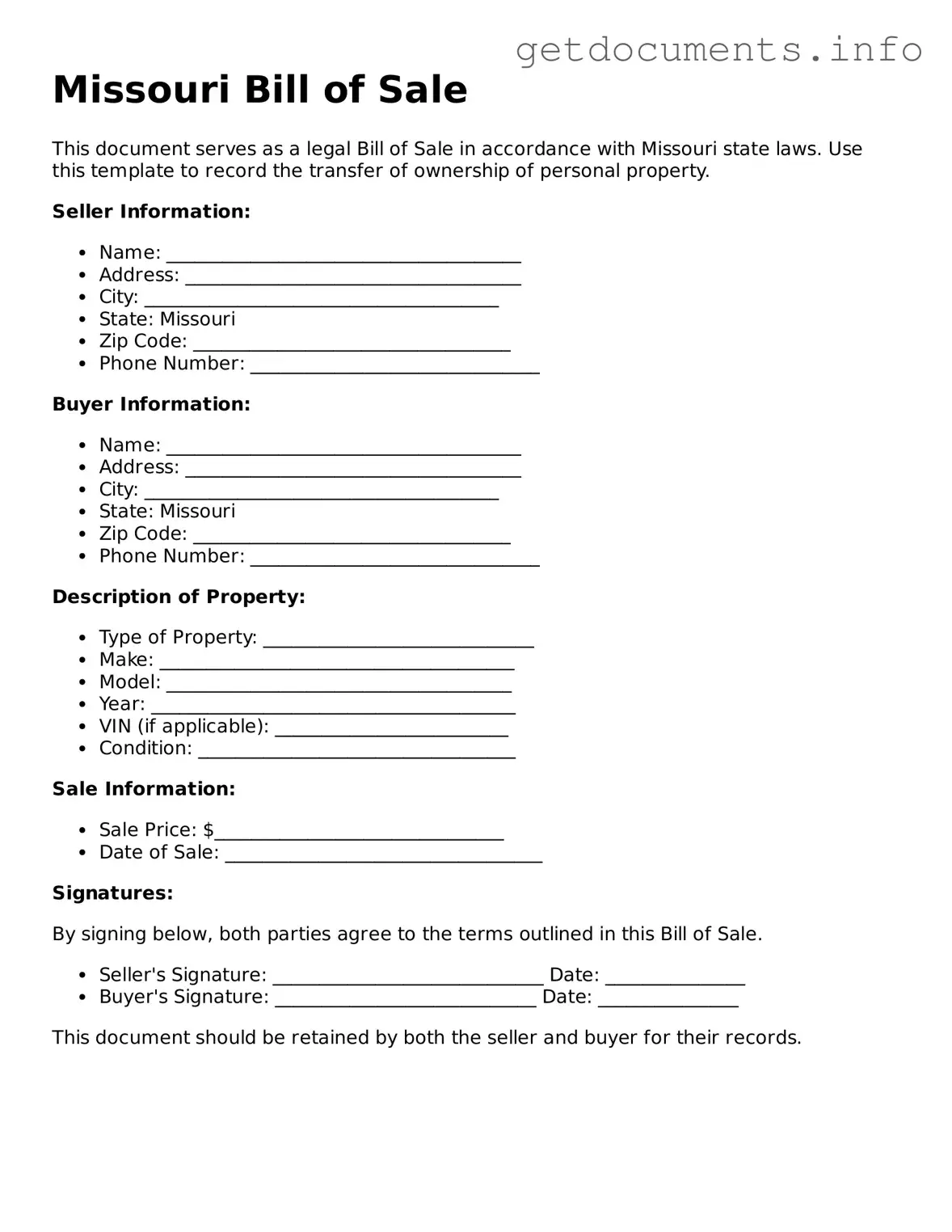Free Bill of Sale Template for Missouri
The Missouri Bill of Sale is a legal document that serves as proof of the transfer of ownership of personal property from one party to another. This form is essential for ensuring that both the buyer and seller have a clear record of the transaction, protecting their rights and interests. To get started on your own Bill of Sale, simply fill out the form by clicking the button below.
Access Bill of Sale Editor

Free Bill of Sale Template for Missouri
Access Bill of Sale Editor
Got places to be? Complete the form fast
Fill out Bill of Sale online and avoid printing or scanning.
Access Bill of Sale Editor
or
⇩ PDF File
